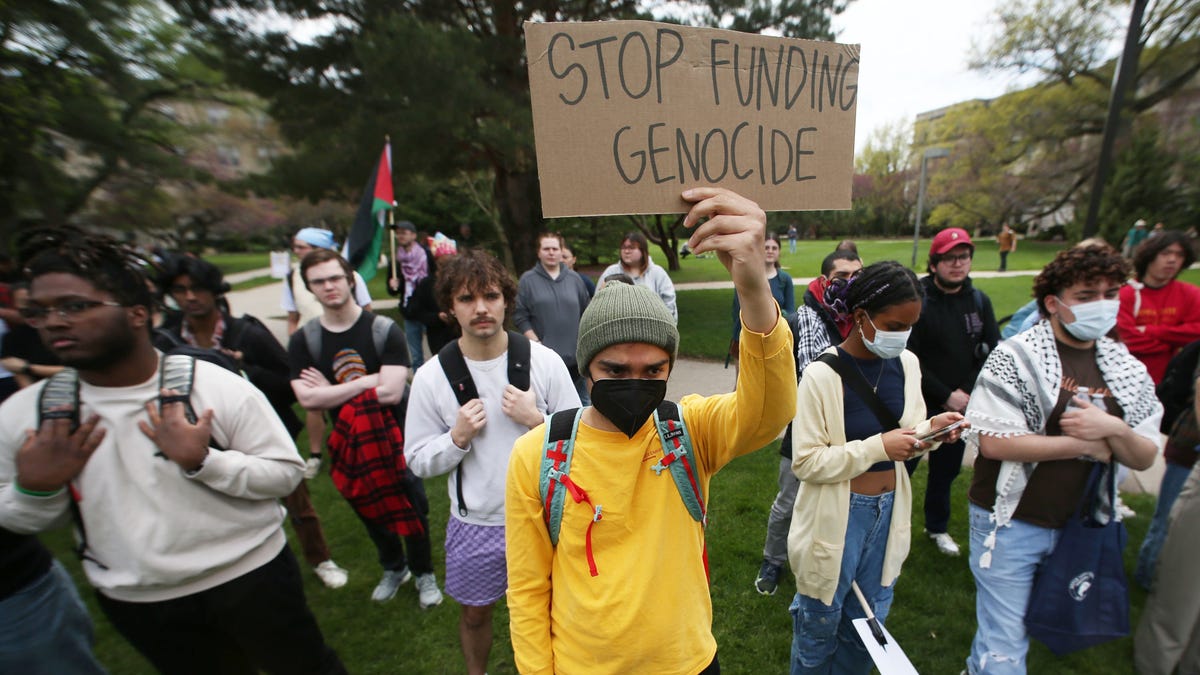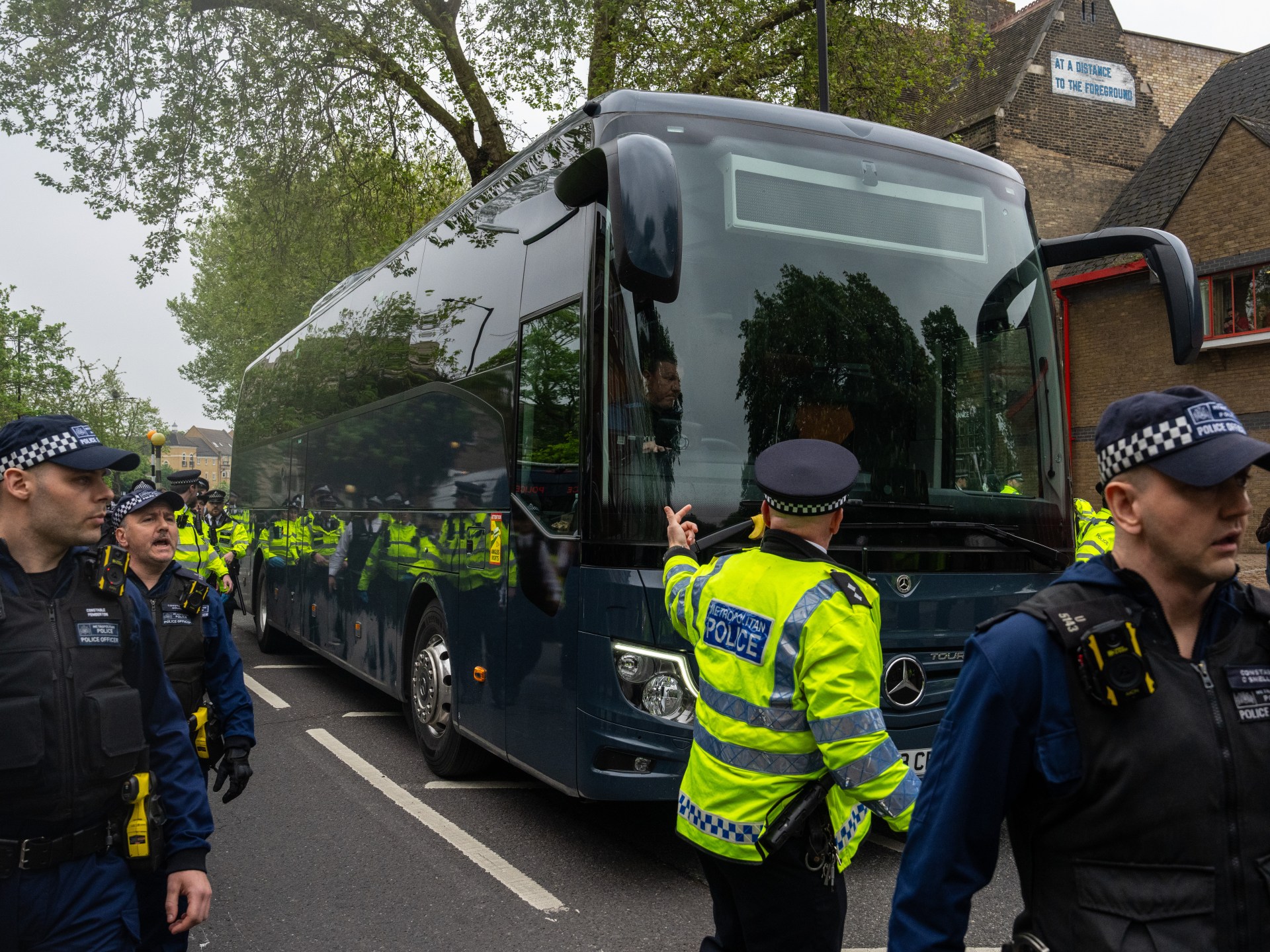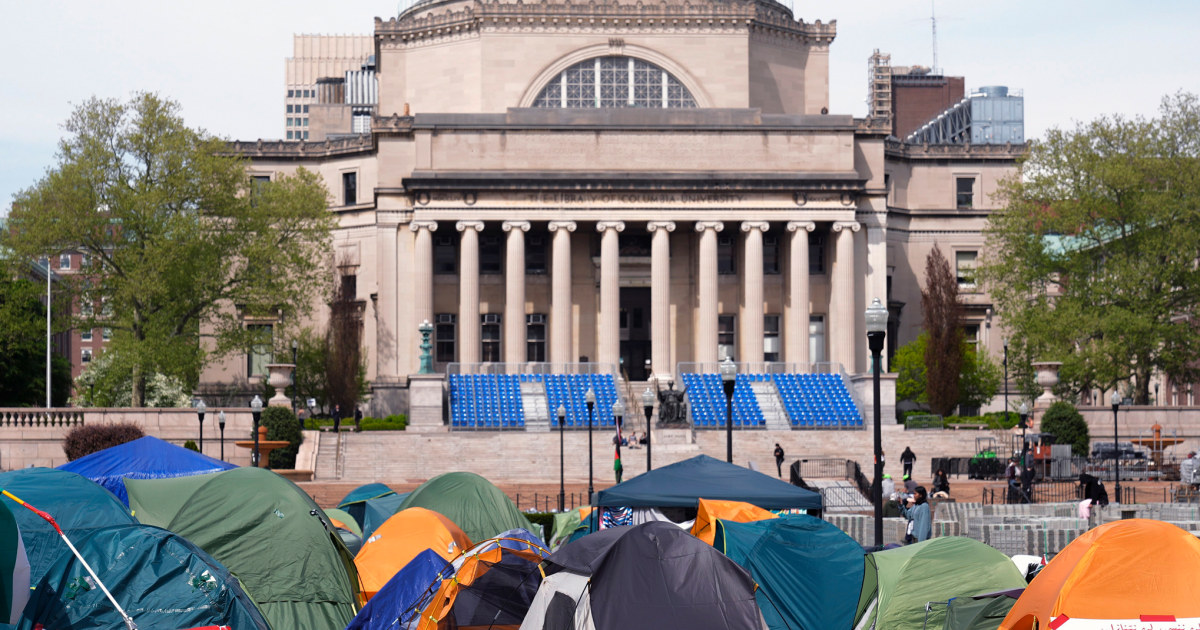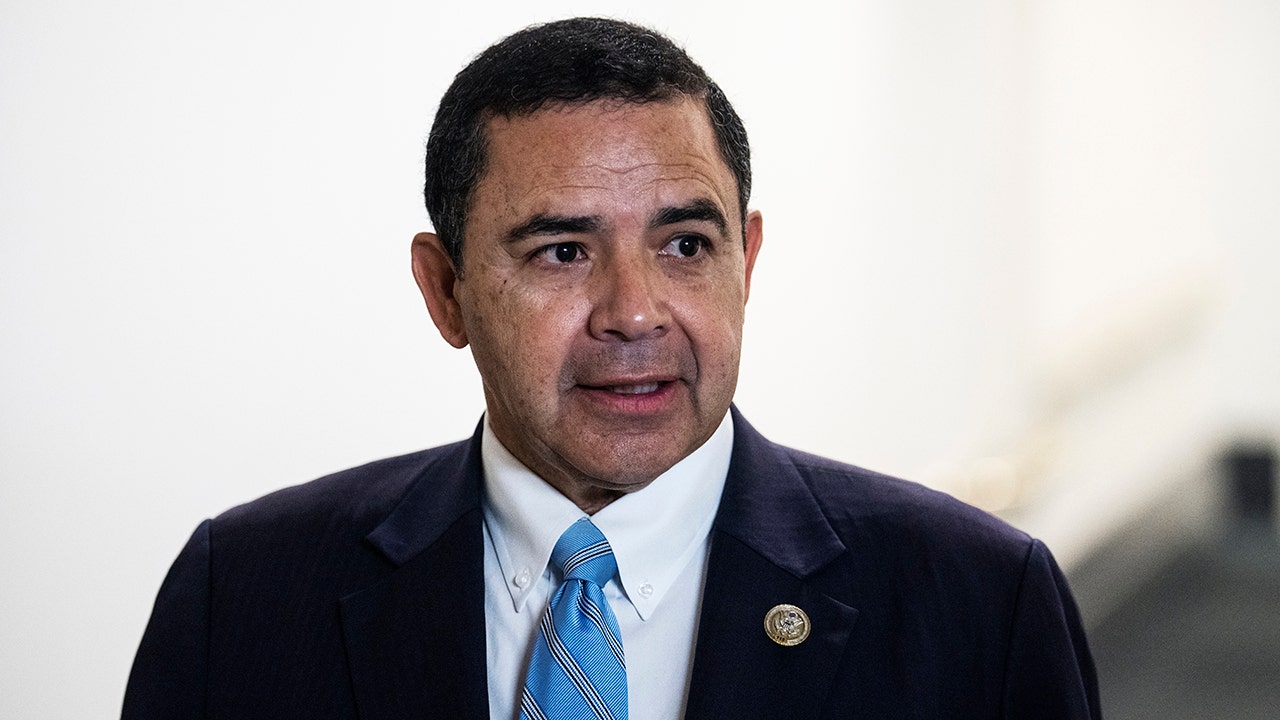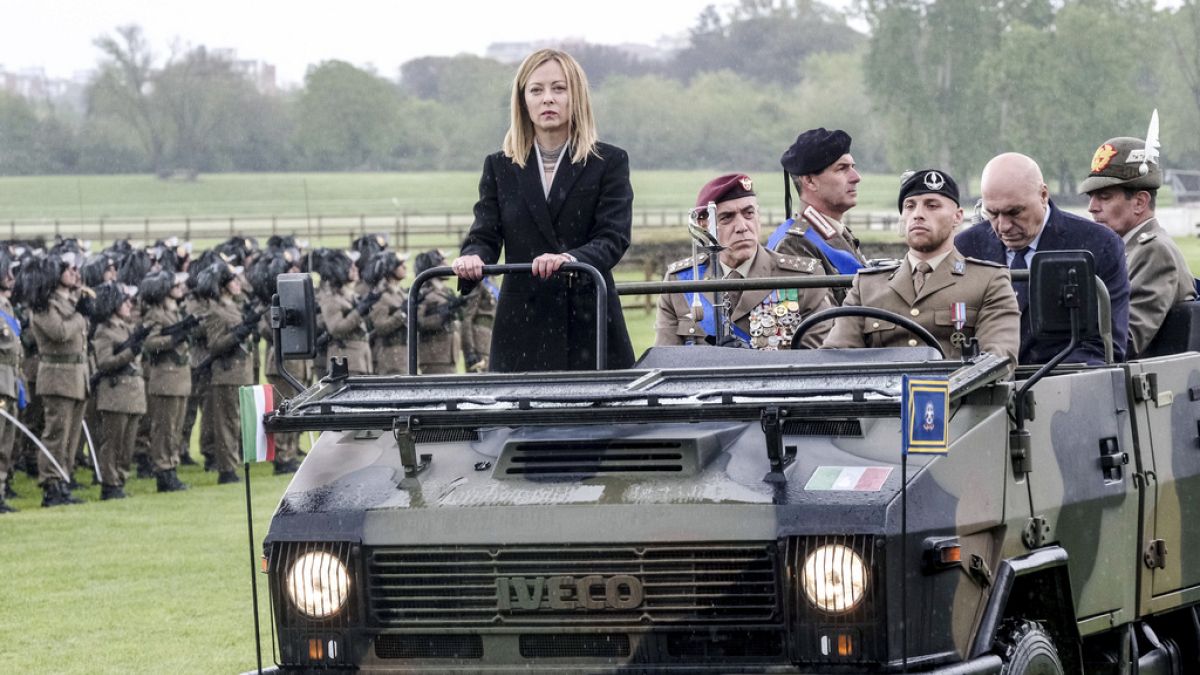World
Pentagon set to send $1 billion in military aid to Ukraine once bill clears Senate, Biden
WASHINGTON (AP) — The Pentagon is poised to send a $1 billion package of military aid to Ukraine, several U.S. officials said Tuesday as the Senate began debate on long-awaited legislation to fund the weapons Kyiv desperately needs to stall gains being made by Russian forces in the war.
The decision comes after months of frustration, as bitterly divided members of Congress deadlocked over the funding, forcing House Speaker Mike Johnson to cobble together a dramatic bipartisan coalition to pass the bill. The $95 billion foreign aid package passed the House on Saturday and the Senate approval is expected either Tuesday or Wednesday.
The votes are the result of weeks of high-voltage debate, including threats from Johnson’s hard right faction to oust him as speaker. About $61 billion of the aid is for Ukraine.
The package includes an array of ammunition, including air defense munitions and large amounts of artillery rounds that are much in demand by Ukrainian forces, as well as armored vehicles and other weapons. The U.S. officials said some of the weapons will be delivered very quickly to the battlefront — at times within days — but it could longer for other items to arrive. They spoke on condition of anonymity because the aid has not yet been publicly announced.
America’s infusion of weapons comes on the heels of an announcement by the U.K. on Tuesday, pledging an additional $620 million in new military supplies for Ukraine, including long-range missiles and four million rounds of ammunition.
The announcement reflects President Joe Biden’s promise Monday in a call with Ukrainian President Volodymyr Zelenskyy saying that the U.S. would send the badly needed air defense weapons once the Senate approved the bill. Zelensky said in a posting on X, formerly Twitter, that Biden also assured him that a coming package of aid would also include long-range and artillery capabilities.
The $1 billion package was first reported by Reuters.

World
In Texas, pro-Palestine university protesters clash with state leaders

Austin, Texas – “It didn’t feel real.” That’s how Alishba Javaid, a student at the University of Texas at Austin, describes the moment when she saw roughly 30 state troopers walk onto the campus lawn.
Javaid and hundreds of her classmates had gathered on the grass, in the shadow of the campus’s 94-metre limestone tower, as part of a walkout against Israel’s war in Gaza.
They were hoping that their school would divest from manufacturers supplying weapons to Israel. Instead, law enforcement started to appear in increasing numbers.
By Javaid’s count, the state troopers joined at least 50 fellow officers already in place, all dressed in riot gear. The protest had been peaceful, but nerves were at a high. The troopers continued their advance.
“That was the first moment I was genuinely scared,” said Javaid, 22.
Dozens of students were ultimately arrested on April 24, as the officers attempted to disperse the protesters. Footage of the clashes between police and demonstrators quickly spread online, echoing images from other campus protests across the United States.
Yet, Texans face a unique challenge, as they contend with a far-right state government that has sought to limit protests against Israel.
In 2017, Governor Greg Abbott signed a law that prohibits government entities from working with businesses that boycott Israel, and the state has since taken steps to tighten that law further.
Abbott has also cast the current protests as “hate-filled” and “anti-Semitic”, amplifying misconceptions about demonstrators and their goals.
In addition, a state law went into effect earlier this year that forced public universities to shutter their diversity, equity and inclusion (DEI) offices.
Multiple students and employees told Al Jazeera that campuses have become less safe for people of colour as a result of the law, which forced the departure of staff DEI advocates.
‘Using violence to subvert minorities’
The violence has continued at University of Texas campuses as students press forward with their protests.
On the final day of class, April 29, police used pepper spray and flash-bang devices to clear a crowd at the Austin campus, while dozens more were encircled by troopers and dragged away screaming.
Hiba Faruqi, a 21-year-old student, said her knee “just kept bleeding” after she was knocked over during a pushing-and-shoving match between students and police.
Yet she counts herself lucky for not sustaining worse injuries. It was surreal, she said, to think that her own university called in state troopers — and then had to deploy medical personnel to assist students who were hurt.
“There’s a racist element people don’t want to talk about here,” she said. “There’s a xenophobic element people don’t want to acknowledge. There are more brown protesters, which maybe emboldens the police to do things a certain way.”
As calls for divestment continue, students, lawyers and advocates told Al Jazeera they have been forced to navigate scepticism and outright hostility from the Texas government.
“Texas is known for using violence to subvert minorities,” Faruqi said. “The reason this is shaking people this time is because it’s not working.”

Scrutiny over university endowments
Many of the protests have zeroed in on the University of Texas’s endowment, a bank of funds designed to support its nine campuses over the long term.
The University of Texas system has the largest public education endowment in the country, worth more than $40bn.
Some of that money comes from investments in weapons and defence contractors, as well as aerospace, energy and defence technology companies with deep ties to Israel.
ExxonMobil, for example, is one of the biggest beneficiaries of the system’s investments, and the company has supplied Israel with fuel for its fighter jets.
Those ties have fuelled the protests across the state’s public university campuses, including a May 1 demonstration at the University of Texas at Dallas.
Fatima — who only shared her first name with Al Jazeera, out of fear for her safety — was among the demonstrators. She wiped sweat from her brow as a young child led the crowd of about 100 in a series of chants: “Free, free, free Palestine!”
The divestment protests have largely been peaceful, Fatima explained, raising her voice to be heard above the noise.
“Over 30,000 people have been murdered,” she said, referring to the death toll in Gaza, where Israel’s military campaign is entering its eighth month.
“And our university is investing in weapons manufacturing companies that are providing Israel with these weapons. We’re going to stay here until our demands are met.”
Twenty-one students and staff members were arrested that day in Dallas. Members of the group Students for Justice in Palestine, of which Fatima is a member, spent the night outside the county jail, waiting for their friends to be released.
One protester wryly noted outside the jail that they had been arrested for trespassing on their own campus, a seemingly nonsensical offence.
In the background, a thunderstorm was beginning to rear its head, so the protesters huddled closer together under the awning.

Texas officials and university administrators have justified the police crackdowns, in part, by citing the presence of outsiders with no present affiliation with the campuses involved.
But 30-year-old activist Anissa Jaqaman is among those visiting the university protests, in an effort to lend supplies and support.
Everyone has a role to play, Jaqaman explained: Her role is sometimes that of the communicator, but more often that of the healer.
She has brought water to the student demonstrators at the University of Texas at Dallas and hopes to provide a space for people to “come over and talk about how we heal”.
“This is a healing movement,” she said time and again as she spoke to Al Jazeera. “We have to carry each other.”
Jaqaman is Texas through and through: She was raised in the Dallas suburbs and is a strong advocate for her state.
“I’m a proud Texan,” she said. “I actually think that Texans are some of the nicest people in the country.”
But back when she was in college, from 2012 to 2016, Jaqaman started to use her voice to bring awareness to the plight of Palestinians.
Rights groups have long warned that Israel has imposed a system of apartheid against the ethnic group, subjecting its members to discrimination and displacement.
In college, Jaqaman’s friends often laughed at her passion. She often smiles, exuding optimism, but her voice grows serious as she talks about Palestine, as well as other issues like the scourge of single-use plastics.
“They just thought I was a tree-hugger, but for human rights,” she explained, speaking in a soft yet confident voice.
But the current war has amplified her concerns. The United Nations has signalled famine is “imminent” in parts of Gaza, and rights experts have pointed to a “risk of genocide” in the Palestinian enclave.
Jaqaman has sported her keffiyeh scarf ever since the war began on October 7, despite feeling anxious that it could attract violence against her.
“I wear it because I feel like it protects my heart, honestly,” she said. “I feel like I’m doing the Palestinian people injustice by not wearing it.”
But she has struggled to get public officials to engage with her concerns about the war and divestment from industries tied to Israel’s military. For months, she attempted to persuade her local city council that “this is a human issue, an everyone issue”, to little avail.
“Everything that we’re seeing right now is about shutting down the discussion,” she said. “If you say anything about Palestine, you’re labelled anti-Semitic. That’s a conversation-ender.”

Youth protesters look to the future
Students like Javaid, a journalism major in her final semester, told Al Jazeera that they are still trying to figure out what healing looks like — and what their futures might hold. In many ways, she and her friends feel stuck.
They recognise they need to take a break from scouring social media for information about the war, and yet it is all they can think about.
The usual college rites of passage — final exams, graduation and job hunting — just don’t seem as important any more.
“How are we supposed to go back to work now?” Javaid asked after the protests.
While she has treasured her time at the university, she is also highly critical of its actions to stamp out the protests. Part of the blame, she added, lies with the government, though.
“The root issue in Texas is that the state government doesn’t care,” she said.
Born and raised in the Dallas area, Javaid plans to stay in Texas for at least a little while after she graduates this month. She has mixed feelings about staying long term, though.
She would like to work in social justice, particularly in higher education, but she worries such a job would be tenuous in her home state.
Still, she feels a sense of responsibility tying her to the state. The political climate in Texas may be challenging, she said, but she has a duty — to her fellow protesters and to Palestine — to keep playing a role.
“I don’t want to jump ship and just say, ‘Texas is crazy’,” Javaid said. “I want to be a part of the people trying to make it better. Because if not us, who?”
World
Night Court Renewed for Season 3

ad
World
Colombia cuts diplomatic relations with Israel, but its military relies on Israeli technology
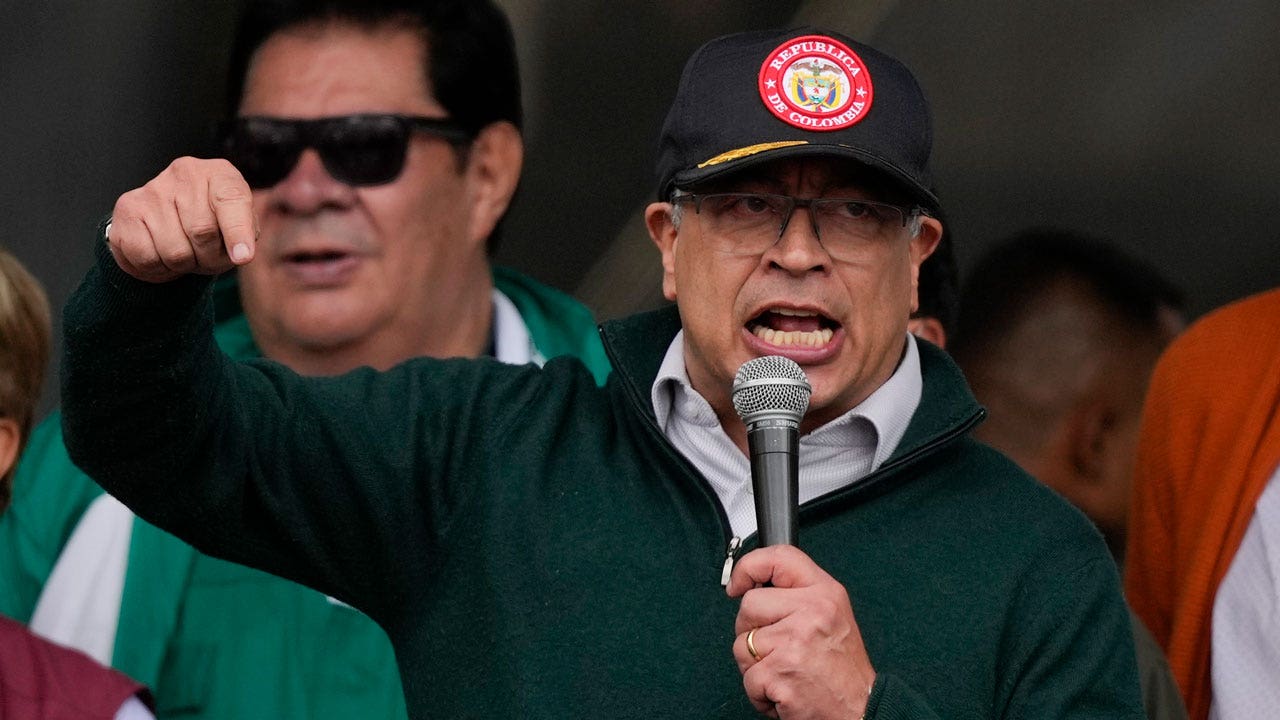
Colombia has become the latest Latin American country to announce that it will break diplomatic relations with Israel over its military campaign in Gaza, but the repercussions for the South American nation could be broader than for other countries because of longstanding bilateral agreements over security matters.
Colombian President Gustavo Petro on Wednesday described Israel’s actions in Gaza as “genocide,” and announced his government would end diplomatic relations with Israel effective Thursday. But he didn’t address how his decision could affect Colombia’s military, which uses Israeli-built warplanes and machine guns to fight drug cartels and rebel groups, and a free trade agreement between both countries that went into effect in 2020.
Also in the region, Bolivia and Belize have severed diplomatic relations with Israel over the Israel-Hamas war.
COLOMBIA’S PRESIDENT SAYS HUNDREDS OF THOUSANDS OF PIECES OF AMMUNITION HAVE GONE MISSING FROM MILITARY BASES
Here’s a look at Colombia’s close Israel ties and fallout:
WHY IS SECURITY COOPERATION BETWEEN COLOMBIA AND ISRAEL IMPORTANT?
Colombia and Israel have signed dozens of agreements on wide-ranging issues, including education and trade, since they established diplomatic relations in 1957. But nothing links them closer than military contracts.
Colombia’s fighter jets are all Israeli-built. The more than 20 Kfir Israeli-made fighter jets were used by its air force in numerous attacks on remote guerrilla camps that debilitated the Revolutionary Armed Forces of Colombia. The attacks helped push the rebel group into peace talks that resulted in its disarmament in 2016.
Colombian President Gustavo Petro speaks at the International Workers’ Day march in Bogota, Colombia, on May 1, 2024. Petro on Wednesday announced his government would end diplomatic relations with Israel. (AP Photo/Fernando Vergara)
But the fleet, purchased in the late 1980s, is aging and requires maintenance, which can only be carried out by an Israeli firm. Manufacturers in France, Sweden and the United States have approached Colombia’s government with replacement options, but the spending priorities of Petro’s administration are elsewhere.
Colombia’s military also uses Galil rifles, which were designed in Israel and for which Colombia acquired the rights to manufacture and sell. Israel also assists the South American country with its cybersecurity needs.
WILL PETRO’S ANNOUNCEMENT AFFECT COLOMBIA’S MILITARY-RELATED CONTRACTS WITH ISRAEL?
It remains unclear.
Colombia’s Foreign Ministry said Thursday in a statement that “all communications related to this announcement will be made through established official channels and will not be public.” The ministry didn’t immediately respond to a request for comment from The Associated Press, while the Israeli Embassy in Bogota declined to address the issue.
However, a day before Petro announced his decision, Colombian Defense Minister Iván Velásquez told lawmakers that no new contracts will be signed with Israel, though existing ones will be fulfilled, including those for maintenance for the Kfir fighters and one for missile systems.
Velásquez said the government has established a “transition” committee that would seek to “diversify” suppliers to avoid depending on Israel. He added that one of the possibilities under consideration is the development of a rifle by the Colombian military industry to replace the Galil.
Security cooperation has been at the center of tensions between the two countries. Israel said in October that it would halt security exports to Colombia after Petro refused to condemn Hamas’ Oct. 7 attack on southern Israel that triggered the war and compared Israel’s actions in Gaza to those of Nazi Germany. In February, Petro announced the suspension of arms purchases from Israel.
For retired Gen. Guillermo León, former commander of the Colombian air force, the country’s military capabilities will be affected if Petro’s administration breaks its contract obligations or even if it complies with them but refuses to sign new ones.
“At the end of the year, maintenance and spare parts run out, and from then on, the fleet would rapidly enter a condition where we would no longer have the means to sustain it,” he told the AP. “This year, three aircraft were withdrawn from service due to compliance with their useful life cycle.”
WHAT IS THE TRADE RELATIONSHIP BETWEEN THE TWO COUNTRIES?
A free trade agreement between Colombia and Israel went into effect in August 2020. Israel now buys 1% of Colombia’s total exports, which include coal, coffee and flowers.
According to Colombia’s Ministry of Commerce, exports to Israel last year totaled $499 million, which represents a drop of 53% from 2022.
Colombia’s imports from Israel include electrical equipment, plastics and fertilizers.
Neither government has explained whether the diplomatic feud will affect the trade agreement.
-

 News1 week ago
News1 week agoLarry Webb’s deathbed confession solves 2000 cold case murder of Susan and Natasha Carter, 10, whose remains were found hours after he died
-

 World1 week ago
World1 week agoHaiti Prime Minister Ariel Henry resigns, transitional council takes power
-

 News1 week ago
News1 week agoFirst cargo ship passes through new channel since Baltimore bridge collapse
-

 World1 week ago
World1 week agoSpanish PM Pedro Sanchez suspends public duties to 'reflect'
-

 World1 week ago
World1 week agoUS secretly sent long-range ATACMS weapons to Ukraine
-

 Movie Reviews1 week ago
Movie Reviews1 week agoHumane (2024) – Movie Review
-

 News1 week ago
News1 week agoAmerican Airlines passenger alleges discrimination over use of first-class restroom
-

 Education1 week ago
Education1 week agoVideo: Johnson Condemns Pro-Palestinian Protests at Columbia University

